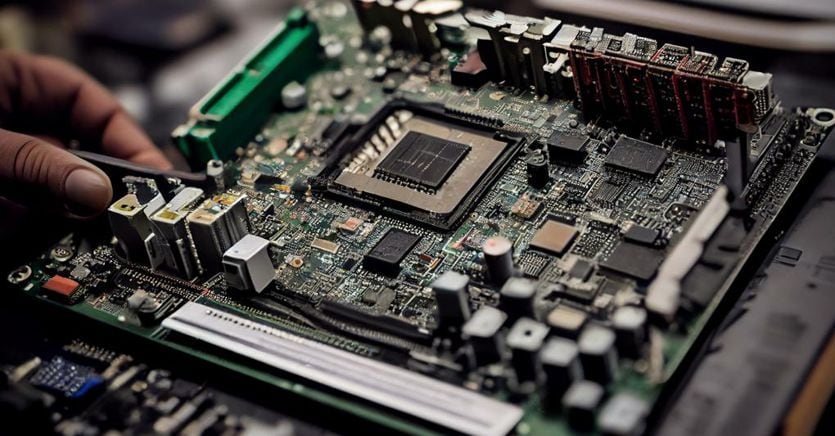Listen to the audio version of the article
According to the latest available report from AFS, which analyzes the impact of semiconductor shortages on the global automotive industry, the situation is improving, but logistical constraints and inventory control will continue to moderate the overall outlook for this year. The forecast of loss of volumes, due to chips, based on current market conditions, for 2023 has been lowered for 2023: 2.6 million vehicles estimated, against the actual 6 million between 2021 and today ( the estimate was about 11 million).
Meanwhile, chip manufacturers from all over the world, driven by the shock caused by the pandemic and on the wave of geopolitical tensions, are investing billions to create new plants. They are encouraged by the growing use of semiconductors in everyday devices but also by the subsidies and strategic choices of the United States and the EU, aimed at countering China’s advance. Including the stop to industrial settlements in countries “of concern”, starting with the Dragon.
The European Commission has allocated 15 billion euros for public and private semiconductor projects by 2030, while the Biden administration approved the Chips Act in July 2022, so as to make subsidies worth over 52 billion dollars available. For its part, Beijing has recently responded with the Foreign Minister, Qin Gang. China does not see the difference between “risk reduction” and decoupling, Qin Gang told a press conference in Germany: “If the EU seeks to secede from China in the name of risk reduction, it will secede by opportunity, cooperation, stability and development”.
Meanwhile business is business. Among the western giants Intel stands out, which in the United States has announced the construction of a 20 billion site in Ohio. The company also started two new plants in Arizona in September 2021. Taiwanese TSMC, the world‘s largest foundry with 55% market share, said in December it plans to invest $40 billion in its foundry plant. chip in Arizona, so a far cry from Beijing. The plant is expected to be operational in 2024. Micron in turn said it plans to invest up to 100 billion dollars over the next 20 years to build a complex dedicated to computer chips in upstate New York. Micron, however, has decided to challenge Beijing’s bans with a new 600 million dollar investment in its Xi’an plant.
As for Europe, Intel itself will spend more than 30 billion euros to develop two chip production plants in Magdeburg, a German city that it chose in March 2022 as a fundamental part of its 81 billion mega investment across Europe. The US giant will receive 10 billion in subsidies from the Berlin government. Intel itself is continuing talks with Italy for an advanced packaging and assembly plant, the company said, after announcing last week it would invest up to $4.6 billion in a new packaging and testing facility. semiconductors in Poland. Meanwhile, however, the Santa Clara multinational is also moving towards Israel, with a 25 billion dollar project and thousands of jobs.
